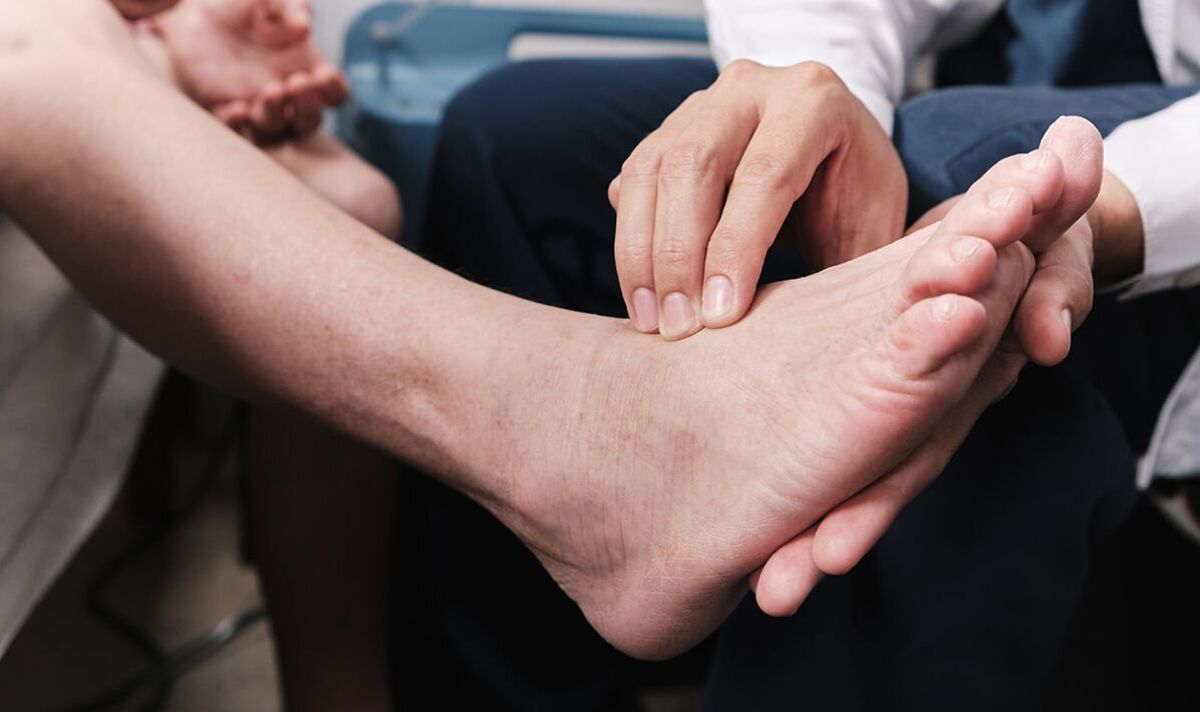Worldwide, cardiovascular disease is the leading cause of death, responsible for nearly 18 million fatalities annually. This includes conditions that affect the heart and circulatory system such as strokes, coronary heart disease and heart failure.
Within the UK it is just as deadly, causing around a quarter of all deaths. Therefore, spotting the warning signs before it is too late could be life saving.
Many of us are aware of some of the most common symptoms, such as chest pain. However, others are lesser known and less obvious.
One expert revealed that your feet can actually provide an indication of your heart health.
As explained by Dr Ram, a podiatrist known on TikTok as the Good Foot Doctor, there are five symptoms that can appear on the feet.
Swelling
If your feet experience oedema it could mean you have heart disease.
Oedema is the medical term for swelling. In the case of heart problems it could also occur in your legs.
According to Dr Ram, this is, “Telling you your heart isn’t working properly”.
Brown or yellow discolouration
If your feet turn brown or yellow this is called hemosiderin.
This means that blood is leaking out of tiny vessels known as capillaries.
Blue toes
Blue or purple coloured toes, known as cyanosis, occurs when your blood vessels are blocked and there’s a lack of oxygenated blood to tissue.
Dr Ram added: “Warning, without treatment, lack of oxygen to tissue will eventually die.”
Lumps
He warned that painful lumps on your toes could mean your heart or blood vessels are infected.
These lumps are known as Osler nodes. They are often a red-purple colour with a painful centre.
Brown discolouration
A brown or reddish discoloration on the sole could be caused by Janeaway lesions.
These are a sign of a heart infection known as endocarditis.
Other symptoms of heart disease include:
- Chest pain, chest tightness, chest pressure and chest discomfort (angina)
- Shortness of breath
- Pain in the neck, jaw, throat, upper belly area or back
- Pain, numbness, weakness or coldness in the legs or arms if the blood vessels in those body areas are narrowed.
If you experience symptoms or are concerned about your heart health you should speak to your GP.
To lower your risk for heart disease the NHS recommends:
/latest/










